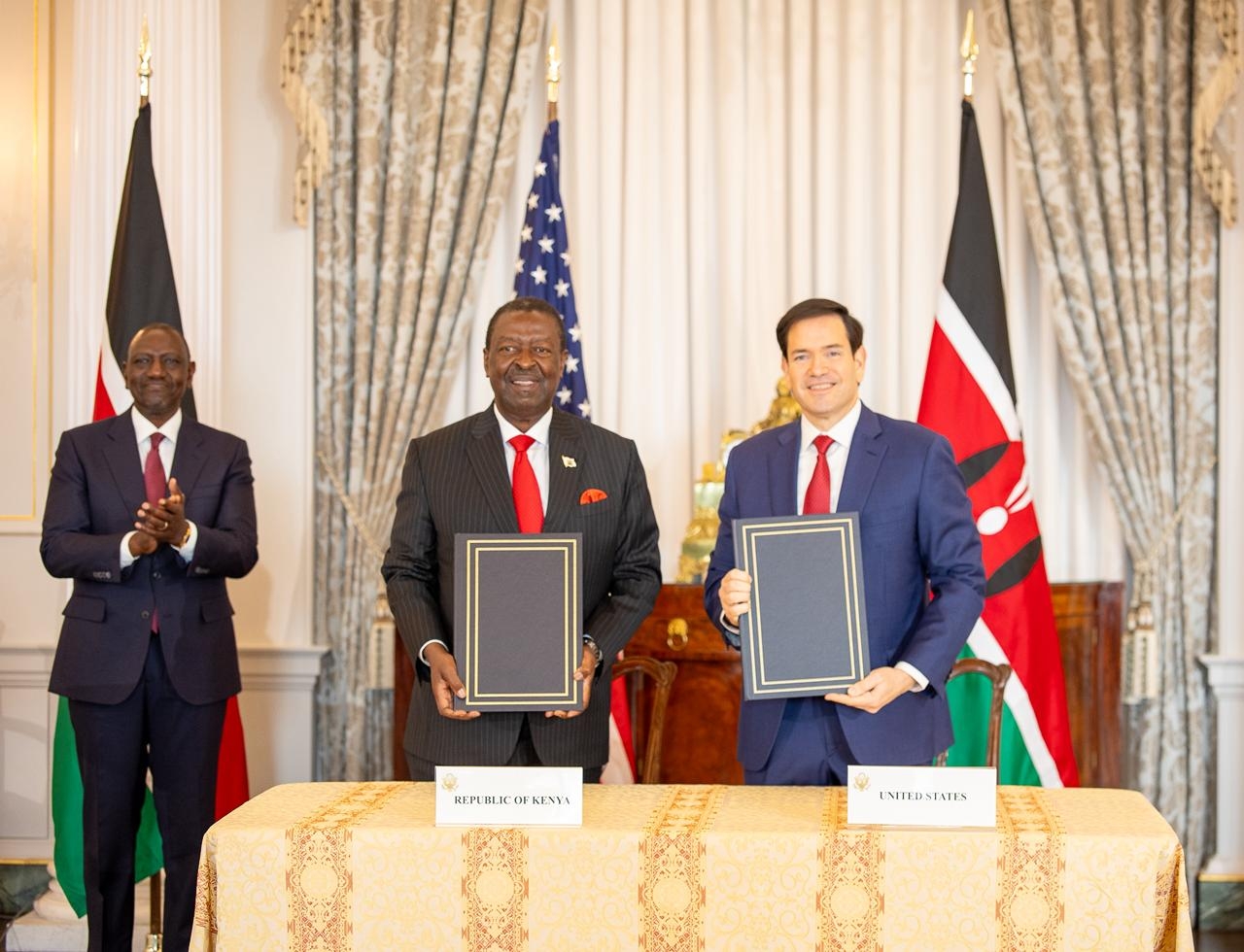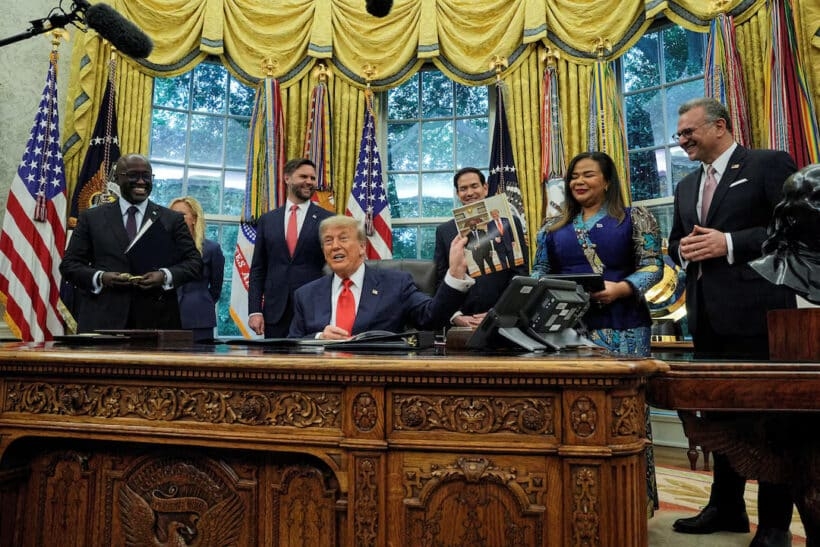.jpg)
The High Court will from 11 am today hear an application by the Attorney General and National Assembly seeking to set aside orders blocking the swearing-in of Prof Kithure Kindiki as the new Deputy President.
The application was filed by Solicitor General Shadrack Mose.
The order was issued by a Kirinyaga court.
The Solicitor General argues the order is against the country’s interest as the constitution does not envisage a vacancy in the office of the Deputy President.
“The said conservatory orders were issued ex-parte and without according to the state or the National Assembly or the parties a chance to be heard,” the application reads.
“That it is prejudicial to the people of Kenya and the entire republic if the office of the Deputy President remains vacant as a result of the ex-parte interim orders.”
The National Assembly on the other hand claims Justice Richard Mwongo issued the order without ascertaining whether he had jurisdiction to entertain matters concerning the impeachment process.
Advocate Eric Gumbo argues that according to the constitution, in particular articles 95 & 96 vests Parliament with the exclusive mandate to hold the Executive accountable through mechanisms including impeachment.
"Justice Mwongo issued the ex-parte order with the effect of reviewing the impeachment proceedings contrary to the doctrine of political questions when Gachagua ceased to hold office on October 17 when the Senate voted to uphold his impeachment," said Gumbo.
The National Assembly which is in support of the AGs application to set aside the orders argues that stopping implementation of the resolution of the Senate will occasion a significant constitutional crisis.
It is their argument that the order by Mwongo was issued on the basis of non-disclosure of material facts including that the implementation of the resolution that has been stayed had already taken effect.
Kindiki was on Friday nominated as Deputy President nominee and was on the same day approved and gazetted by the National Assembly.
The gazettement means that Kindiki is the country's deputy president-elect awaiting his swearing-in.
Aggrieved Gachagua, through his legal team swiftly moved to the High Court where Justice Chacha Mwita suspended the appointment of a new DP.
Justice Mwita also halted the appointment of Gachagua's successor until October 24.
Judgement on housing levy
Separately, the high court is also expected to deliver a judgement touching on the Affordable Housing Act.
The government has since defended its creation saying the 1.5% levy was imposed to raise funds that will be used to enable all citizens to access decent affordable housing.
While the petitioners in the case have termed this as "a Ponzi scheme" the state said the rate was carefully negotiated with the populace.
Senior Counsel Prof Githu Muigai, Kiragu Kimani and Mahat Somane asked a three-judge bench to allow the Act to remain operational and dismiss the petitions filed by 22 senators led by Busia Senator Okiya Omtatah, Dr Benjamin Gikenyi and other human rights defenders.
They submitted heavily on issues of double taxation, public participation, judicial independence, and discrimination under the Affordable Housing Act among other issues.
The senators had argued that the affordable housing levy constituted double taxation, particularly on individuals who had taken out mortgages prior to the Act.
But th state was quick to dismiss this claim saying it cannot be substantiated.
They explained that a mortgage is a credit facility advanced to a person wishing to purchase a house and is treated as a debt by the homeowner.
"It is also not true that a majority of Kenyans are servicing mortgages as alleged by the petitioners," said Githu.
They maintained that the act introduced the levy to achieve a specific public purpose which is to raise funds that will ultimately be used to enable all citizens to have access to decent affordable housing.
"The notion of double taxation is fundamentally flawed," the counsels asserted.
But the senators said the Act cannot be allowed to stand as the Act's legal framework has no clear roadmap on how people in the informal sectors will pay the levy which brings discrimination.
The told Justices John Chigiti, Olga Sewe and Josephine Mong'are that the act didn't consider those already servicing mortgages, or have their own houses with a preferred style.
"Forcing people to get deducted so as to enable another person get a house, while the contributor is not benefiting is unconstitutional," said the senators.
They asked the courts to consider how other levies like the fuel and sugar levy operate.
For context, the court was told that all those who pay for the fuel levy benefit from the levy maintaining roads.
"But when it comes to the housing levy, there is no clear roadmap on how people in the informal sectors will pay it which brings about discrimination," they said.
In a rejoinder, Githu and team explained said the senators did not demonstrate the existence of any unfair discrimination brought about by the act.
They said the levy extends beyond salaried employees to include persons who have other sources of income.
Maxine Wahome trial
At the criminal division, the High Court is expected to proceed with the murder trial of Maxine Wahome.
Last week a surgeon from Avenue Hospital testified that Asad Khan died out of multiple organ failure caused by severe bleeding.
















